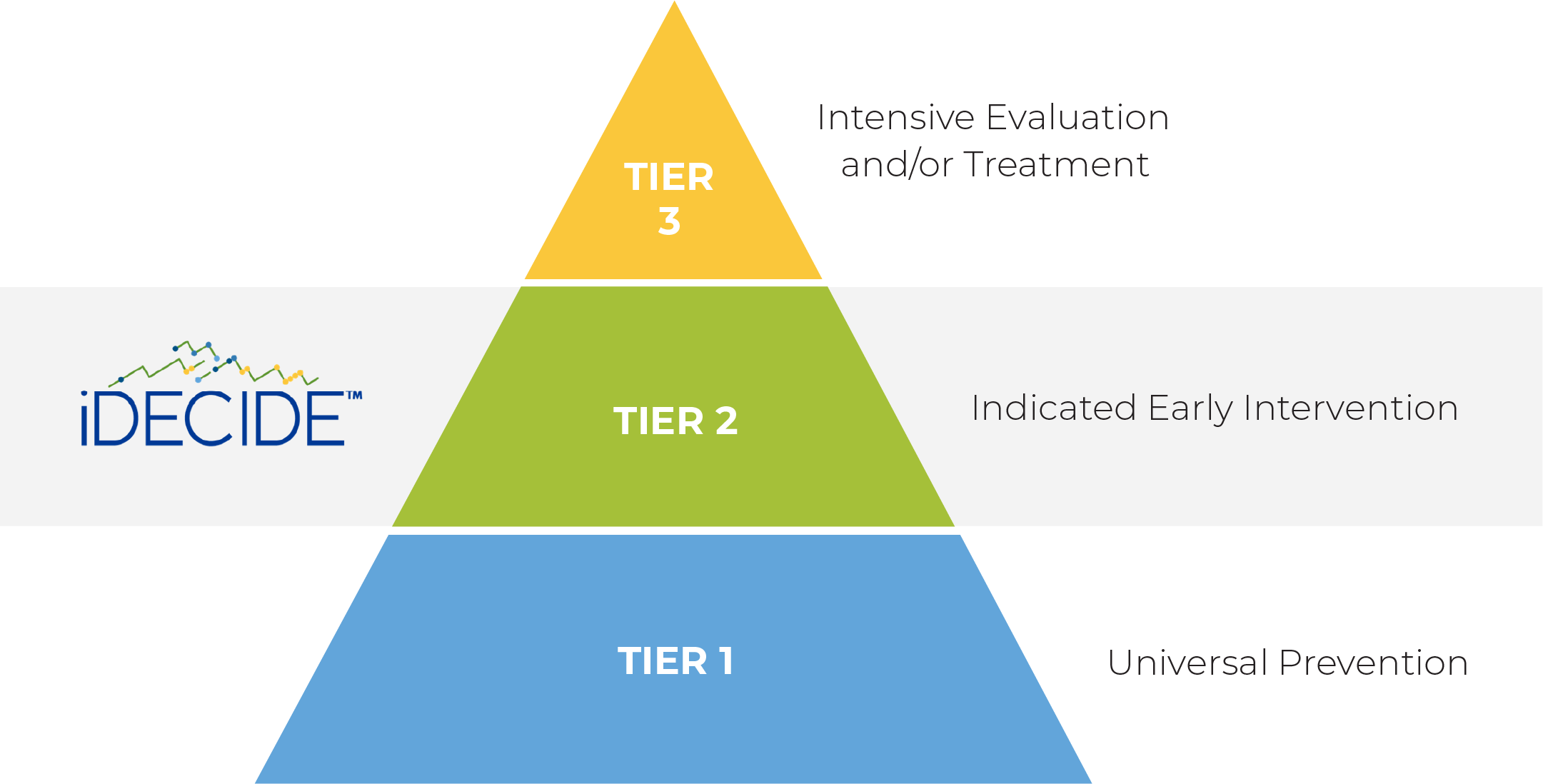Introduction
iDECIDE (Drug Education Curriculum: Intervention, Diversion, and Empowerment), is an evidence-based tier-2, early indicated substance use intervention for middle and high school students. iDECIDE restoratively approaches supporting behavior change through empowering youth with a structured format to learn, reflect, and reconsider their decision-making around their own substance use. Designed to serve as a secondary prevention effort for youth at risk for escalating substance use, students can engage iDECIDE as through referral, as well as an alternative to exclusionary punitive responses.
The objective of iDECIDE is to provide students with:
a scientific understanding of the impact of substance use and addiction on the adolescent brain and body;
an understanding of the common tactics used by industry to target young people;
the ability to identify and respond to personal impulses to use alcohol and other drugs; and
a sense of empowerment and a plan to make healthy decisions in line with their core values and future goals.
The Need for Equitable Alternatives to Punishment for Substance Use
With an increasing number of students violating school substance use policies, there is an urgent need to establish reasonable, equitable, and effective school responses to substance use infractions.
Punitive approaches don’t work as effective deterrents for substance use.1
Punitive approaches are associated with increased risk for other negative health,1,2 behavioral3,4,5 and academic outcomes.6,7,8
Punitive approaches have a disproportionate negative impact on students of color and students with learning disabilities and/or psychiatric illness…thus magnifying social inequities.9
To address these needs, the Center for Addiction Medicine at Massachusetts General Hospital, in collaboration with the Office of Youth and Young Adult Services at the Massachusetts Department of Public Health and the Institute for Health and Recovery, has designed an alternative to punitive responses to school-based substance use infractions. iDECIDE is a scalable and sustainable best practice education- and skills-based curriculum designed to retain students in school and empower them to make healthy decisions. iDECIDE will also help to improve health equity among students and ensure that responses to substance use infractions at school are effective, age-appropriate and science-based.
